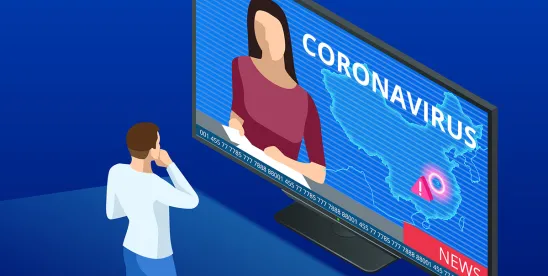As the coronavirus (a/k/a COVID-19) continues to spread, the United States Center for Disease Control and Prevention (“CDC”) warns of the outbreak reaching potentially pandemic levels in the United States. As of this writing, limited cases of the coronavirus have been confirmed in the country, but, unfortunately, the first fatalities have been reported in the State of Washington and a person who recently traveled to Italy has contracted the disease right here in Hillsborough County. And the government is predicting things to get much worse due in large part to the ease with which the virus seems to spread, the long incubation period before symptoms actually appear, and the similarities between coronavirus symptoms and less severe respiratory problems such as the flu and even some aspects of the common cold.
With the spread of the coronavirus in full swing, employers should be aware of the disease’s many legal ramifications.
Providing a Safe Work Environment
First, the Occupational Safety and Health Act (“OSHA”) requires employers to provide employees with a workplace “free from recognized hazards that are causing or are likely to cause death or serious physical harm.” Certain states have adopted State Plans featuring more stringent standards than those under OSHA. At a minimum, employers should consider:
-
Restricting travel to areas known to be affected such as China and Italy.
-
Imposing self-quarantines – away from work – for those who have the virus, who have traveled to an affected area, or who otherwise have been exposed to someone who has or even may have the virus. Such employees should not be permitted to return to work until they have produced a Fitness for Duty certification from a healthcare provider (for employees taking FMLA) or doctor’s return-to-work note (for those not taking FMLA).
-
Permitting leaves of absence from work and/or work from home (more on that later).
-
Educating employees about the virus, its symptoms (fever, cough, difficulty breathing), how it spreads, and safety measures that can be taken to mitigate its spread.
-
If an employee who has the coronavirus has entered the workplace, contact the Centers for Disease Control and local health department immediately as well as a hazmat company to disinfect the workplace.
-
Reviewing safety programs to ensure that they adequately address communicable diseases and that they comply with OSHA protocols or more stringent state standards (as applicable).
Leaves of Absence & Working from Home
An employee who actually has the coronavirus is entitled to up to 12 weeks of unpaid leave under the FMLA (as long as they meet the other FMLA requirements such as 12 months of employment and working at a site with 50 or more employees within a 75 mile radius). Similarly, FMLA is available to employees whose family members (such as a spouse, child, or parent) are infected. Infected employees who are not otherwise eligible for FMLA leave may be entitled to reasonable accommodations such as working from home and leave under the Americans With Disabilities Act (ADA). However, all or part of the leave may be “paid” to the extent the employee has available vacation, sick, or other paid time off.
Employees who are merely suspected of having coronavirus due to recent travel to an affected area or due to potential exposure to an infected person cannot be “forced” to take FMLA leave because mere suspicion of being sick does not mean the employee actually has the requisite “serious health condition.” This means that employers cannot count such days off against FMLA leave. Nevertheless, those employees should be strongly encouraged to work from home or otherwise take time off to avoid the risk of exposing others. If an employee refuses to stay home, they can be legally prohibited from entering the workplace. However, to alleviate the financial burden on employees and to encourage voluntary reporting of symptoms and possible risk of exposure, employers should consider (but do not have to): (a) relaxing attendance policies and/or “no working from home” policies; and (b) paying for the time off (even if no work is done) through vacation, sick, and PTO policies and gratuitously paying for the time off once available time off is exhausted.
Identifying Coronavirus in the Workplace
Another legal challenge arises out of identifying employees who may have the coronavirus. The ADA prohibits employers from requiring employees to undergo medical examinations unless they are deemed “job-related” and “consistent with business necessity.” This includes situations where an employee would pose a direct threat to others due to a medical condition. The more the disease spreads – particularly if the virus reaches the pandemic level – it is more likely that employers will be permitted to mandate employee examinations.
Miscellaneous Considerations
-
Employees who are expected to travel as an essential job function should continue business as usual and may be disciplined for refusing to travel to unaffected areas.
-
Medical records relating to employees who have coronavirus must be kept strictly confidential, including being maintained in files separate from the employee’s personnel file. This includes not disclosing the fact that a particular employee has coronavirus – instead, let healthcare officials handle such identification as they deem necessary.
-
Employees who raise reasonable concerns in good faith about employee safety issues, including a company’s lack of preparedness for the coronavirus, may be protected from retaliation as “whistle-blowers”.
-
For the latest information about coronavirus, we recommend that you consult with the CDC’s website https://www.cdc.gov/coronavirus/2019-ncov/index.html and/or https://www.osha.gov/SLTC/covid-19/






 />i
/>i
